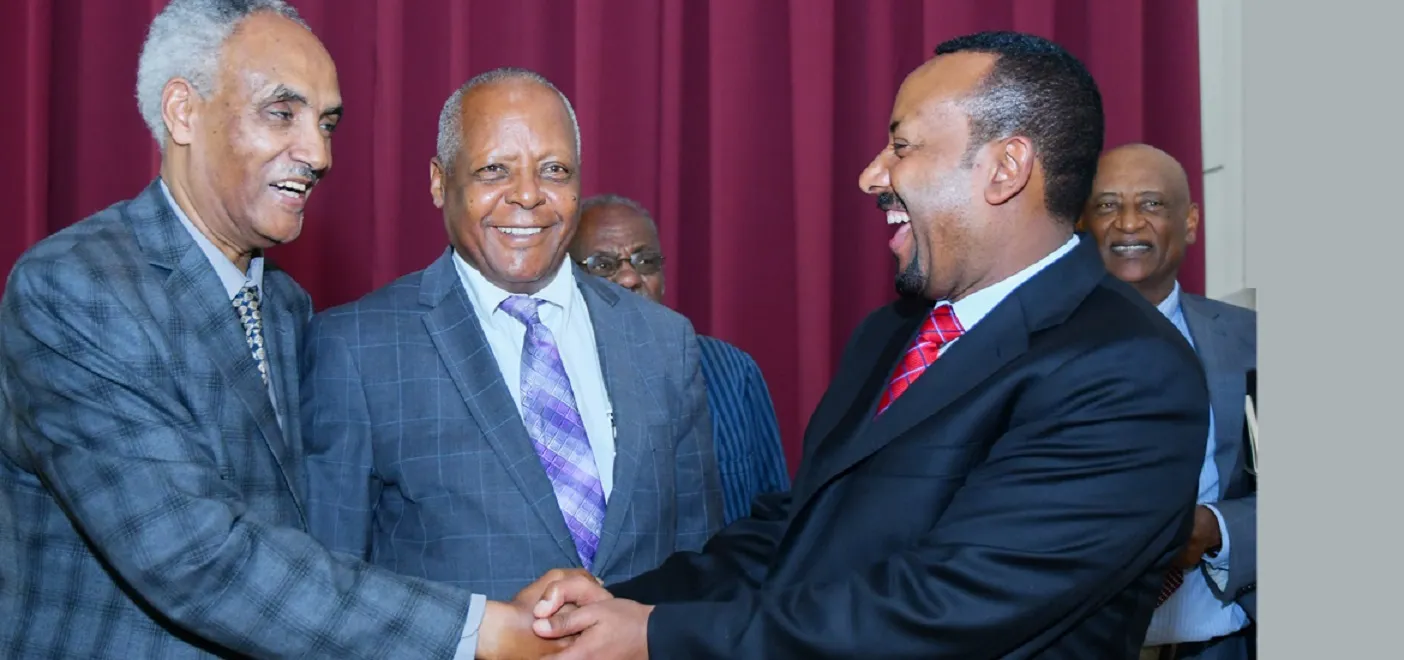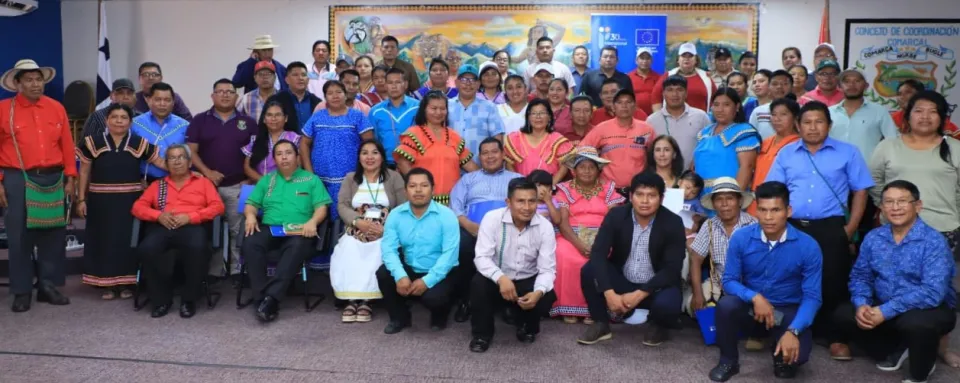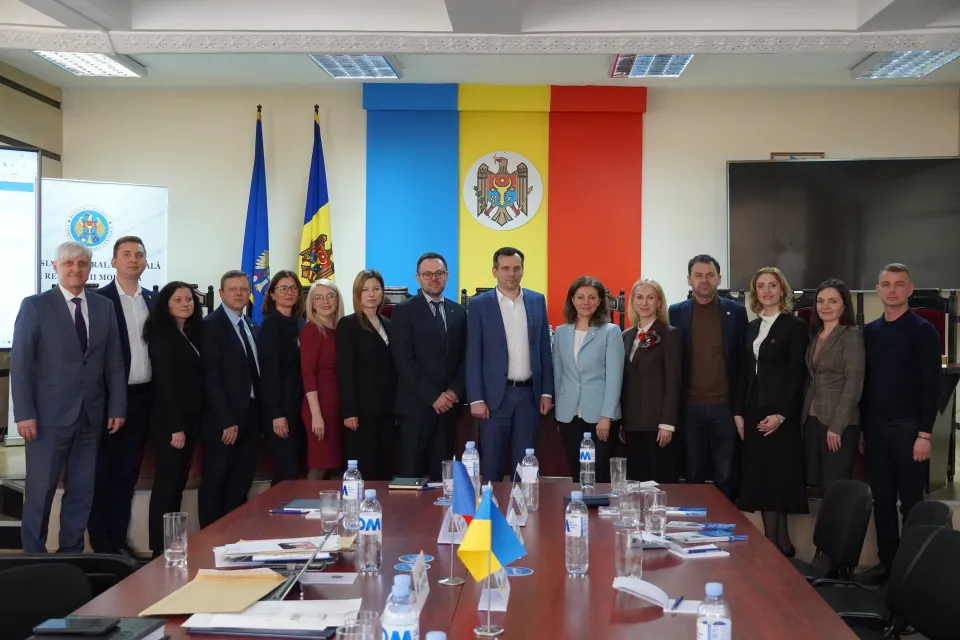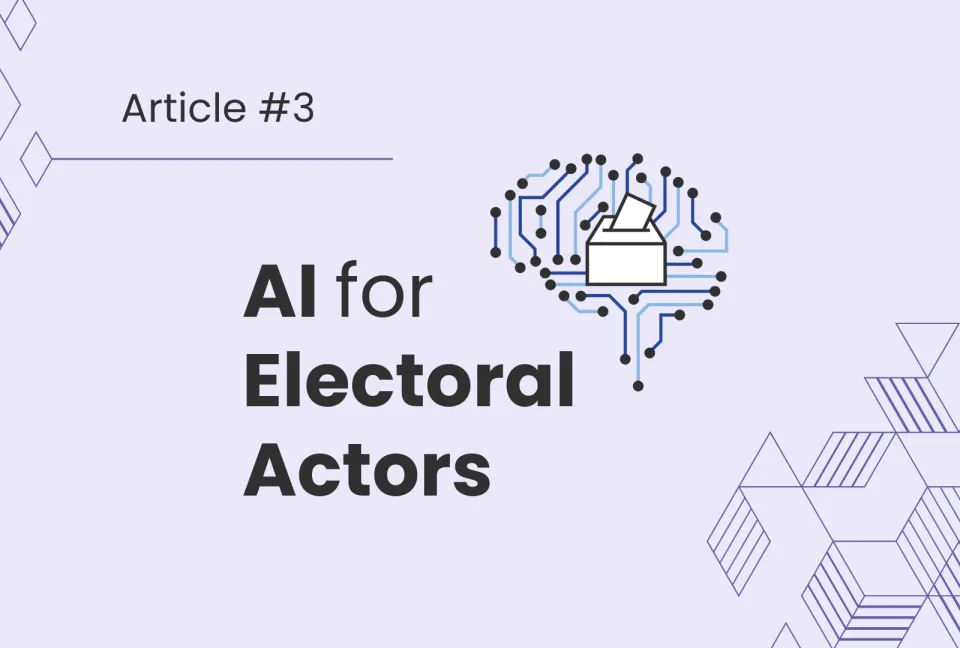Beating around the bush on the constitutional conundrum

Rather than focusing solely on a questionable constitutional interpretation process, complementary democratic pathways through the COVID-19 emergency and election delay should also be considered.
On 11 May, the Council of Constitutional Inquiry (CCI) made a public announcement seeking written submissions from experts on a request for constitutional interpretation from the House of Peoples’ Representatives (HoPR), submitted on 5 May. The request indicates that the National Electoral Board of Ethiopia is unable to conduct elections on 29 August as planned, as a result of disruptions to its preparations due to the national and international responses to the COVID-19 pandemic.
The constitution fixes the term of the HoPR, and therefore government, to a maximum of five years (Article 54(1), and requires elections at least a month prior to the end of the term of the HoPR (Article 58(3)). Because the term of the current parliament will end on 5 October, the inability to hold elections before 5 September would be contrary to the constitution, unless the suspension of the relevant provisions is justified as necessary under the current emergency circumstances (Article 93(4)(b)).
Accordingly, the request for constitutional interpretation seeks answers to two questions:
- What happens to legislative and executive organs whose terms would end if elections cannot be held due to an emergency situation that necessitates a state of emergency?
- How long after the end of the situation that necessitated a state of emergency should the elections be held?
Plausible solutions within the current constitutional framework have been suggested for these key constitutional and legal issues. But the outcomes of the interpretation exercise would not address underlying concerns regarding the emergency and elections. Instead, approaches such as a National Dialogue and a consultative government, which fall beyond the ambit of the constitutional framework, should also be considered.
Procedural hurdles
Before the CCI/House of Federation (HoF) delve into determining the substantive solutions to the constitutional conundrum, they must first settle preliminary procedural issues.
Mandate to issue advisory opinion
It is important to state from the outset that the request for interpretation does not relate to whether elections can be postponed at all. The postponement is presented as a given. Beyond this, there is no specific government decision, law, or even proposal, and the request does not relate to the compatibility of a chosen course of action with the constitution. Therefore, the HoPR is seeking an opinion on what the constitution requires or allows in relation to the two issues.
In the absence of a chosen or proposed course of action, there will not be a review by the CCI, whether concrete or abstract. Accordingly, the request is for an advisory or consultative opinion. Advisory opinion is distinct from abstract review in that it involves the review of a decision or law without a need to show that the decision affects a specific person’s rights (i.e. without a victim). In procedures for an advisory opinion, there may not be a decision at all—as is the case in the request at hand.
As in all legal proceedings, the CCI must first determine whether it has the constitutional and legal mandate to provide an advisory opinion. This is critical because some commentators have argued that the constitution does not allow the issuance of advisory opinions, or even abstract review.
Under Article 62 of the constitution, the HoF has a plenary power to “interpret” the constitution. There is no reference to ‘disputes’ or even ‘review’, which would assume the presence of a decision or law. In contrast, Article 83(1) refers to the power of the HoF to resolve “constitutional disputes”, in the Amharic version ‘ክርክር’. Specifically, in relation to the CCI, the English version of Article 84(1) also speaks of constitutional disputes, but the Amharic version uses ‘ጉዳዮች’ (“issues”), rather than ‘ክርክር’.
A cumulative reading of these provisions appears to suggest that the HoF has a broader mandate to interpret the constitution than the CCI, which could arguably be understood to include providing advisory or consultative opinions.
This distinctive mandate seems to have found expression in the relevant laws regulating the role of the two institutions. Article 4(2) of HoF Proclamation No 251 provides that the HoF shall not be obliged to ‘provide consultancy service on constitutional interpretation’. The a contrario reading of this provision could be interpreted to mean that the HoF has the discretion to offer an advisory opinion. Indeed, the HoF has on occasions provided advisory opinion (e.g., on the issue of whether a federal family code could be enacted as part of the need to create a single economic community), but has also declined to offer such service (e.g., on the meaning of the ‘special interest’ of Oromia over Addis Ababa).
Admittedly, the current request is much more amorphous than the instances where the HoF gave an advisory opinion, as the HoPR is not seeking advice on whether a specific plan or proposal (e.g. a federal family code) would pass constitutional muster. The current request is unique in that it is completely open and exploratory, potentially opening the possibility for a range of constitutionally plausible answers, rather than a single answer. There is therefore no guarantee from precedent that the request would be accepted, despite the momentous occasion.
In contrast, the proclamation regulating the CCI, no 798/2013, has no provision authorising the CCI to issue an advisory opinion. Some commentators have indicated that Article 3(2)(c), which allows one-third of members of a federal or state legislature, or the federal or state executive to submit a request for constitutional interpretation on any ‘unjusticiable [sic] matter’ provides the basis for the request for interpretation. Nevertheless, this provision cross references and gives effect to Article 3(1) which clearly refers to challenges to any ‘law, customary practice or decision of government organ or decision of government official’. As such, under this law, the CCI can only review a law, decision, or customary practice.
As indicated, in relation to the request for interpretation on the consequences of the postponement of elections, there is no law or decision. Accordingly, if at all this request could be considered, it may have to be directly submitted to the HoF, not the CCI.
It may be argued that Article 6 of Proclamation No. 251 enjoins the HoF to forward direct requests for constitutional interpretation to the CCI. As such, a procedural technicality should not be used to delay the settlement of the critical matter. This would be inaccurate. A discretion to accept a request for an advisory opinion is fundamental and is a filtering mechanism that allows the HoF to consider a range of factors, including non-legal factors.
A decision to seek an advisory opinion is inherently political, so is a decision to accept it or not. As a principally legal entity, the CCI may be unsuitable to exercise this discretionary power. Leaving the initial decision to the HoF would also insulate the CCI from accusations of selectivity in the exercise of the discretion. Therefore, Article 6 of Proclamation No. 251 may not necessarily be understood as justifying the delegation of the discretionary decision to accept or reject a request for an advisory opinion.
If this line of argument is accepted, the CCI must either directly rely on the apparently broader Amharic version of Article 84(1) of the constitution empowering it to resolve constitutional ‘issues’; or it may have to decline the request and advise the HoPR to submit the request to the HoF instead. The HoPR and the government may then either choose a course of action, which could then be challenged as unconstitutional, or submitted to the CCI/HoF for abstract review; or redirect the request for advisory opinion to the HoF.
While the matter may ultimately return to the CCI, and this outcome would simply delay the resolution of the matter at a moment when time is of the essence, respect for legality and a need to insulate the CCI from undue politicization may justify it.
Need for constitutional interpretation
Suggesting that the constitution is clear and does not need interpretation does not exclude the CCI from entertaining the request, if only to confirm this stance. A finding that there is no need for constitutional interpretation is itself an exercise in interpretation. In any case, while the relevant constitutional provisions may appear clear in isolation, a constitutionally defensible outcome requires reconciling the logic, interaction, and implications of the various provisions. Once the CCI/HoF claim the mandate to issue an advisory opinion on the current request, the need for constitutional interpretation is evident.
Substantive issues: Possibilities for interim government
Where the procedural hurdles end, the substantive engagement begins. Even if the CCI/HoF affirm that there is need for constitutional interpretation and that they have the general mandate to issue an advisory opinion, they still enjoy the discretion to decline the request in this case.
If the CCI/HoF rule that they have the mandate to issue the advisory opinion and accept to provide an opinion in the current matter, there are a range of different outcomes.
Possibility I: Elections cannot be postponed
First, although the possibility of postponement of elections is presented as a fait accompli, it is not a given that the CCI/HoF would rule that the current constitution allows such postponement. If they rule that postponement is not allowed under the constitution, there would be no option but to amend the constitution to determine the circumstances under which the term of parliament and/or government may be extended, by whom, through what procedures, and for how long on each occasion and/or in total.
Possibility II: Elections can be postponed
If the HoF/CCI rule that the proper interpretation of the relevant constitutional provisions allows the postponement of elections beyond the five-year term in exceptional emergency circumstances that disrupt the organization of elections, they have to determine the consequence of such postponement. One outcome is absolutely necessary, and that is that the government has to continue; the question is only on the form it could take.
1. Parliament dissolves and government continues as caretaker
One possible consequence of the postponement of elections is for the parliament to be dissolved, while the government continues in a caretaker role. This would be analogous to the outcome of dissolution of parliament prior to the end of its term under Article 60.
This solution could be constitutionally plausible, but only if there is certainty that there would not be a need to renew the emergency, as such renewal or issuance of a new emergency would require approval of the HoPR. Considering the inability of excluding the possible extension of the emergency, as health professionals have warned of a possible surge in cases of COVID-19 even after countries have supposedly reached ‘the peak’, the need for renewal or issuance of new emergency cannot be precluded. As such, parliament must also continue.
A caretaker function for the government amid and in the aftermath of an emergency may also be inappropriate. The logic of a caretaker government, which seeks to cabin the role of government, is incompatible with the logic of an emergency, which requires a proactive government not only with a full mandate, but also exceptional powers. In addition to this logic, the unique circumstances that the country finds itself in amid geopolitical contestations over the Grand Ethiopian Renaissance Dam and in the politics of the Horn of Africa may militate against a caretaker government.
This incompatibility of the two logics is probably why in parliamentary democracies whose constitutions specifically regulate the impact of emergencies on terms of parliament and government, such as India (Article 83(2)), Mauritius (Article 57(4))and Poland (Article 228(7)), the institutions continue with full powers.
2. Parliament dissolves, government continues with full powers
This possibility would solve the problem of having a weak government at a time of need for a proactive and strong response. Nevertheless, it would not solve the problem that may arise in case the state of emergency needs to be renewed or a new one to be issued before the elections.
In addition, it is unusual for a government to exercise full, even exceptional, powers without a corresponding accountability mechanism that parliament is designed to provide. In the absence of parliament, the public deliberation that should inform decisions and policies would be undercut.
3. Both parliament and government continue with full powers
This third possibility would allow the parliament and the government to continue with full powers, including powers to suspend constitutional guarantees in an emergency. This option would address the challenges in the above two possibilities.
In addition, the continuity of parliament would at least provide a semblance of political accountability of the government.
This is the option that has in practice been pursued in relation to Addis Ababa City Administration and local elections, which have been repeatedly and controversially postponed. In all these cases, the existing legislative and executive organs simply continued. While the terms and status of these entities are not specifically defined in the constitution, as is the case with the federal legislative organs, and even if the postponements occurred in an authoritarian context, the experiences may be seen as establishing a precedent.
Theoretically, these three possibilities could be constitutionally defensible to varying degrees; admittedly the third option more than others. The presence of different plausible possibilities, rather than the clarity of the constitutional provisions in prohibiting extension of government’s term, may tempt the CCI/HoF to decline the request for an advisory opinion. This would force the government and HoPR to choose one of these options, potentially opening possibilities for negotiation between government and opposition on the way forward, while remaining within the ambit of the constitutional framework. In case anyone challenges the chosen measure, the HoF and CCI would be called upon to exercise a more natural adjudicative function.
Postponement for how long?
The second substantive issue in the request for constitutional interpretation relates to the time within which elections must be conducted after the circumstances that have necessitated the state of emergency end. It is important to clarify from the outset that this is not an issue about how long the emergency may last. The duration of the emergency may only be determined by the Council of Ministers, with the approval of the HoPR.
Considering the lack of information, capacity and resources of the CCI and HoF, it is practically unimaginable that they would readily provide a specific answer on the length of time between the end of the emergency and elections. Instead, they can be expected to determine the entity which can determine the length of time and may offer some guidance on how the decision should be taken.
Who decides?
In terms of the entity, under Article 93(4)(b and c) of the constitution, the power to determine the restrictions on constitutional guarantees during an emergency is conferred on the Council of Ministers. Indeed, the current state of emergency approved by the HoPR opts for a flexible approach and largely leaves the necessary restrictions and measures to the Council of Ministers.
Nevertheless, considering the fundamental nature of the right to vote as the epitome of the sovereignty of the people, and that the HoPR is the ‘highest authority’ at the national level, the CCI/HoF may rule that the decision on the postponement of the elections as well as the exact length of the preparatory period for elections should be made by the HoPR itself, rather than the Council of Ministers.
Based on what?
The right to vote and periodic renewal of the mandate of political institutions lies at the heart of a democratic dispensation. The period of postponement of elections must therefore be only to the extent absolutely necessary to allow proper preparations for elections to ensure competitive, free, fair and informed choices—for the electoral board and the public, as well as political parties, particularly opposition entities.
The CCI/HoF could therefore be expected to find that the determination of the period between the end of emergency and election date should reasonably consider the needs of the various stakeholders. In recognition of ensuring the legitimacy of the elections, the CCI/HoF could specifically require that the decision should be based on the proposal of NEBE, after consultation with the ruling as well as opposition parties, with a duty to provide public explanation for any changes to the electoral board’s proposal.
Beating around the bush: Assurances before warnings
Fundamentally, the contestation within the constitutional framework revolves around two issues, and the controversy over interpretation may therefore simply be beating around the bush. The first relates to opposition concern that the decision to end or renew the state of emergency could be based on calculations to advance the interests of the ruling party, including potentially a much longer period than may be justified. This opposition concern is not unwarranted, considering the absolute dominance of the ruling party.
Nevertheless, this elephant in the room is not among the issues that will be resolved in the constitutional interpretation exercise. While there is a possibility of challenging decisions in relation to the emergency in the CCI/HoF, they are likely to defer to the assessments of the government in this regard, considering their lack of sufficient information, resources, and institutional capacity.
A public government assurance that decisions on ending, renewing, or reissuing a state of emergency would only be taken after genuine prior consultation with opposition groups, or even agreement from parts of the opposition, would go a long way in appeasing concerns in this regard.
The second underlying issue relates to the period of preparations for elections from the end of the circumstances that necessitated the emergency. There is concern among some opposition groups that the government may unduly prolong this period, to allow it time to (ab)use state resources to weaken the opposition; or unduly shorten it to catch the opposition off-guard and unprepared (note that even some of the prominent opposition parties are yet to fully re-register under the new electoral regime). A short period of time could mean that opposition parties have to spend most of their time attempting to finalize their legal establishment, rather than strengthening their structures, promoting their platforms, and building their constituencies.
As noted above, this second issue has been presented for constitutional interpretation. Nevertheless, the CCI/HoF are unlikely to offer a specific period. A CCI/HoF requirement and/or public government assurance that a decision on the period of electoral preparation would be based on the proposals of NEBE and prior genuine consultation with the opposition groups could dampen the level of mistrust.
Government concessions on these two fronts could secure broad opposition support for the continuity of parliament and government with full powers during the interim, an idea that already has support from key opposition groups.
As the saying goes, tough cases make great judges. The CCI and HoF have the chance to reset their records. If the procedural innovations, including in procuring expert submissions and hearings, are complemented with a robust decision, the moment of crisis may signal a hopeful future for constitutional democracy.
It is important to note that the terms of regional parliaments (and their governments) are not determined by the constitution. As such, the constitutional interpretation exercise would not directly and conclusively determine their fate. Nevertheless, the solutions in relation to the federal parliament and government are very likely to be replicated for the regions, as part of the measures under a state of emergency.
Beyond the constitutional framework
The above discussion relates to the possibilities within the current constitutional framework. Nevertheless, while not clearly stated, alternative or complementary proposals that fall outside the ambit of the constitutional framework have also been presented. The postponement of the elections has been seized by some political parties and commentators as a renewed opportunity to propose what they have long argued for.
While it is important to clarify that these proposals are outside the constitutional framework, it does not follow that they are undesirable or should be rejected. If there is sufficient consensus, it is possible to craft a new political and social contract, but that would require a constitutional adjustment.
National Dialogue
Key among these calls relate to a National Dialogue, or a transitional government. Considering the fragmented and polarised political discourse, and the failure to build a fundamental political and social contract in the almost three-decade rule of the former ruling coalition, a National Dialogue may indeed be necessary. While the FDRE Constitution still provides a veneer of a political contract, it never really achieved the reverence and broad support as a legitimate point of reference. The challenge in Ethiopia is not that an old political settlement has died and a new one cannot be born, it is rather the fact that no settlement was ever fully born.
While necessary, a National Dialogue should perhaps not occur in the context of a postponed election. It is arguably better to ensure that a National Dialogue does not occur alongside or close to an election period. Otherwise, short-term electoral calculations are likely to undermine and interfere in the inherently long-term considerations that should permeate such a process.
In any case, a National Dialogue would require a much longer timeframe than any constitutionally acceptable period of postponement. Negotiations on who should be part of such process, what should be on the agenda, how decisions would be taken, and how they would be implemented are likely to require a much longer period, even before substantive deliberations formally commence. As such, imminent engagement in a National Dialogue would perhaps require a constitutional amendment postponing the elections indefinitely. This conduct of a dialogue outside the shadows and short-term calculations of election periods would allow the deliberations to occur behind a veil of ignorance (as no party could know their level of support with certainty in advance of the elections) that is a precondition for a minimal type of public-spirited, reasoned, considerate and empathetic socio-political compact in the form of a new or revised constitutional framework.
In the absence of a sufficient timeframe, such a dialogue is much better left for after the elections, as the ruling party has insisted. As a compromise, the various political groups could start a process to agree on the basic principles that should guide the National Dialogue once elections are finalised. This would be similar to the creative two-stage approach adopted in South Africa after the formal end of apartheid where the African National Congress and other opposition groups and the apartheid government agreed an interim constitution with 34 broad but enforceable principles that formed the basis for a new constitution, which was ultimately drafted by an elected constituent assembly.
Considering the limited time available before elections and the election fever, incorporating such principles in the FDRE Constitution may not be achievable, but this is no excuse for failure to start the process and push as far as practically possible an agreement that would at least enjoy a moral force. Such agreement could involve a commitment from all parties to start the dialogue process as soon as possible, for the winners of the election to provide enough funding and political support, and on who should convene it.
Transitional government
Some opposition groups and commentators have also called for a transitional government. The call is premised on a claim that the current government, as well as the governments before it, were illegitimate and sustained their power through a combination of violence, oppression, and co-option.
Nevertheless, however justifiable the grievance may be, a transitional government would not be acceptable within the current constitutional framework and pursuing it would require a constitutional amendment. Practically, just like a National Dialogue, forming a transitional government would require a much longer timeframe than the postponement of elections that the emergency would necessitate.
In any case, the current government has rejected the possibility of a transitional government. It is also arguably inappropriate in the current context where a unified, proactive government is needed to address the challenges of responding to an emergency and shifting geopolitical and international political sphere.
This does not mean that less formal but more inclusive governance structures cannot be organised. As I have proposed in another piece, the government could agree to a ‘consultative’ government where it would formally provide opposition groups a chance to present and critique proposed policies and decisions prior to their formal endorsement. This formal opportunity for scrutiny is normally exercised by the parliamentary opposition. But because of Ethiopia’s past pseudo-elections and the authoritarian predispositions of the former ruling coalition that Prosperity Party has inherited, there is practically no opposition in the HoPR. The proposed consultative framework would make up for this ‘original sin’ which provides the moral case for allowing opposition groups a formal opportunity to contribute to and influence policy making.
Prime Minister Abiy Ahmed in a recent video message and during consultations indicated that this won’t be practical considering the number of political groups. Nevertheless, this could be addressed through using, for example, the Joint Council of Political Parties as the channel of interaction. Opposition political groups would therefore be required to debate the issues amongst themselves and propose a common position to the government with a fixed period of time. In addition to enhancing the legitimacy of public decisions, the exercise could generate a sense of common purpose and cooperation among the political class. This is also in line with the assurances of opposition consultations described above in relation to the renewal of the emergency and determination of the preparatory electoral period.
If the period of postponement is short, the government is likely to be reluctant to agree to this arrangement. Nevertheless, if this period becomes extensive, the government going it alone may become politically untenable.
Critical juncture
Ethiopia stands at a critical juncture. The controversy over the postponement of the elections and its consequences has triggered a lively, multi-dimensional conversation over the understanding of the constitutional ordinances as well as the direction the country should take.
This piece has sought to contribute to this debate, first by breaking the constitutional issues down into their parts and identifying possible pathways; by discussing the underlying causes of the constitutional controversy, which require political assurances regardless of the outcomes of the interpretation exercise; and by distilling proposed ideas that fall outside the constitutional framework, and must be considered in that light.
While the debates have predictably generated some heated, and at times inflammatory rhetoric, there has arguably never been a moment of collective reflection on the Ethiopian constitution. This is an experience we should be proud of as a nation and must seek to consistently emulate if we are to bury the ghost of constitutions without constitutionalism.
![]()
Published under Creative Commons Attribution-NonCommercial 4.0 International licence. The Original Commentary was published by Ethiopia Insight.
Disclaimer: Views expressed in this commentary are those of the staff member. This commentary is independent of specific national or political interests. Views expressed do not necessarily represent the institutional position of International IDEA, its Board of Advisers or its Council of Member States.




